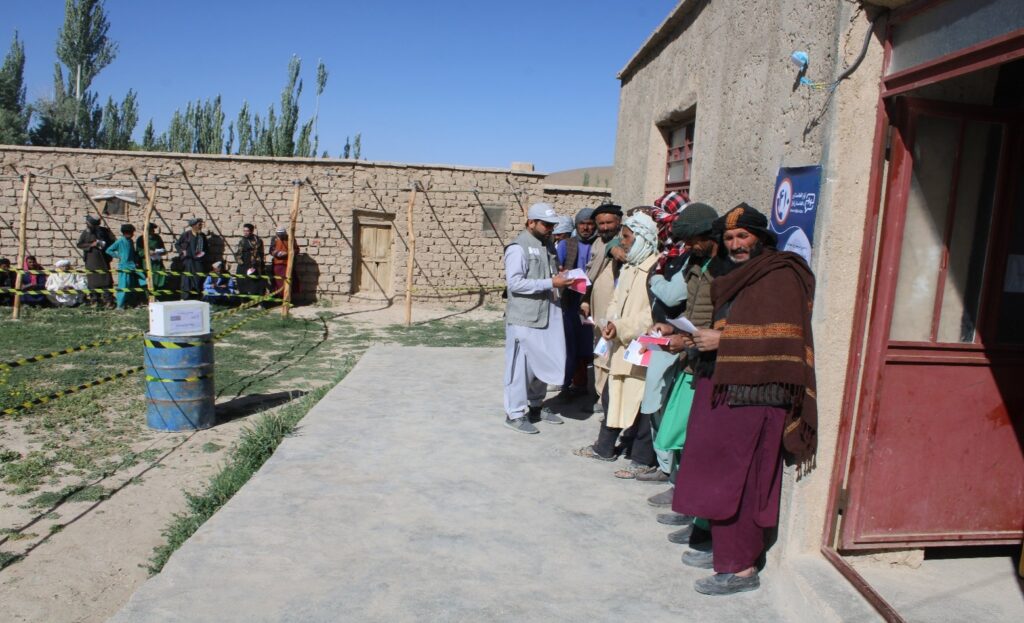Last month, Cordaid concluded a vital winterisation distribution in one of Herat’s most remote and underserved districts. Besides providing warmth, this humanitarian effort in the Farsi District, supported by the Afghanistan Humanitarian Fund, also restored dignity and reconnected those who have been long cut off.

Nestled deep within forested mountains, about 230 kilometres from Herat city, Farsi District is home to communities that face long-standing isolation, ongoing poverty, and harsh winters. For many residents, the cold season is not just uncomfortable but life-threatening.
Blocked Roads and Bitter Cold
Farsi’s harsh winters and lack of essential infrastructure have claimed countless lives over the years, including pregnant women, newborns and the elderly. The unpaved and treacherous roads connecting the district to Herat become impassable during snowfall or heavy rains, leaving entire villages cut off from food, medicine and emergency support.
Against this stark backdrop, Cordaid’s winterisation team launched a project that did more than offer material relief; it delivered a renewed sense of dignity, hope, and human connection to communities that often feel forgotten.
Reaching Thousands with Cash and Blankets
Cordaid successfully assisted 1,030 families (a total of 7,777 individuals) across 27 villages. The intervention prioritised those living in the most precarious conditions: widows and female-headed households, people with disabilities, the chronically ill, and those impacted by extreme poverty or natural disasters. Over 25 per cent of the families reached were headed by women.
Each household received a cash grant of 18,826 Afghanis (approximately USD 264), allowing them to purchase heating fuel, warm clothing, or other seasonal necessities. In addition, every family was given five blankets, totalling 5,150 blankets distributed throughout the area.
Collaboration and Trust
What distinguished this project was not only its capacity to navigate the region’s rugged terrain but also its implementation, conducted in full collaboration with local leaders, government officials, religious figures, and civil society actors.
Every stage, from identifying beneficiaries to final delivery, was carried out with transparency and community involvement. This approach not only guaranteed that assistance reached those most in need but also helped strengthen the bond between humanitarian actors and the communities they serve.
Local elders and officials described the operation as timely and life-saving, praising the integrity of the distribution and the inclusivity of the selection process. For many, this was the first time they felt genuinely seen and supported during the most difficult time of the year.
Just in Time
One elderly woman from Safidan said, ‘Each winter I would wrap my grandchildren in old rags to protect them from the cold, and this year, for the first time in many winters, they will sleep warm’.
Another widow shared her experience: ‘I was preparing to sell my only goat to buy fuel, until the cash assistance arrived just in time’.
Community members also spoke candidly about the dangers of the route from Farsi to Herat, particularly during the snow season. With roads blocked and mobility cut off, even survival essentials become unreachable. Many said the assistance didn’t just meet their practical needs, it gave them a sense that someone, somewhere, cared.